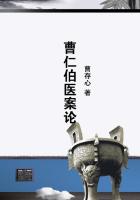Our review of those who have spoken about first principles and reality and of the way in which they have spoken, has been concise and summary; but yet we have learnt this much from them, that of those who speak about 'principle' and 'cause' no one has mentioned any principle except those which have been distinguished in our work on nature, but all evidently have some inkling of them, though only vaguely.
For some speak of the first principle as matter, whether they suppose one or more first principles, and whether they suppose this to be a body or to be incorporeal; e.g. Plato spoke of the great and the small, the Italians of the infinite, Empedocles of fire, earth, water, and air, Anaxagoras of the infinity of things composed of similar parts. These, then, have all had a notion of this kind of cause, and so have all who speak of air or fire or water, or something denser than fire and rarer than air; for some have said the prime element is of this kind.
These thinkers grasped this cause only; but certain others have mentioned the source of movement, e.g. those who make friendship and strife, or reason, or love, a principle.
The essence, i.e. the substantial reality, no one has expressed distinctly. It is hinted at chiefly by those who believe in the Forms;for they do not suppose either that the Forms are the matter of sensible things, and the One the matter of the Forms, or that they are the source of movement (for they say these are causes rather of immobility and of being at rest), but they furnish the Forms as the essence of every other thing, and the One as the essence of the Forms.
That for whose sake actions and changes and movements take place, they assert to be a cause in a way, but not in this way, i.e.
not in the way in which it is its nature to be a cause. For those who speak of reason or friendship class these causes as goods; they do not speak, however, as if anything that exists either existed or came into being for the sake of these, but as if movements started from these. In the same way those who say the One or the existent is the good, say that it is the cause of substance, but not that substance either is or comes to be for the sake of this. Therefore it turns out that in a sense they both say and do not say the good is a cause; for they do not call it a cause qua good but only incidentally.
All these thinkers then, as they cannot pitch on another cause, seem to testify that we have determined rightly both how many and of what sort the causes are. Besides this it is plain that when the causes are being looked for, either all four must be sought thus or they must be sought in one of these four ways. Let us next discuss the possible difficulties with regard to the way in which each of these thinkers has spoken, and with regard to his situation relatively to the first principles.
8
Those, then, who say the universe is one and posit one kind of thing as matter, and as corporeal matter which has spatial magnitude, evidently go astray in many ways. For they posit the elements of bodies only, not of incorporeal things, though there are also incorporeal things. And in trying to state the causes of generation and destruction, and in giving a physical account of all things, they do away with the cause of movement. Further, they err in not positing the substance, i.e. the essence, as the cause of anything, and besides this in lightly calling any of the simple bodies except earth the first principle, without inquiring how they are produced out of one anothers-I mean fire, water, earth, and air. For some things are produced out of each other by combination, others by separation, and this makes the greatest difference to their priority and posteriority. For (1) in a way the property of being most elementary of all would seem to belong to the first thing from which they are produced by combination, and this property would belong to the most fine-grained and subtle of bodies. For this reason those who make fire the principle would be most in agreement with this argument. But each of the other thinkers agrees that the element of corporeal things is of this sort. At least none of those who named one element claimed that earth was the element, evidently because of the coarseness of its grain. (Of the other three elements each has found some judge on its side; for some maintain that fire, others that water, others that air is the element. Yet why, after all, do they not name earth also, as most men do? For people say all things are earth Hesiod says earth was produced first of corporeal things; so primitive and popular has the opinion been.) According to this argument, then, no one would be right who either says the first principle is any of the elements other than fire, or supposes it to be denser than air but rarer than water. But (2) if that which is later in generation is prior in nature, and that which is concocted and compounded is later in generation, the contrary of what we have been saying must be true,-water must be prior to air, and earth to water.
So much, then, for those who posit one cause such as we mentioned;but the same is true if one supposes more of these, as Empedocles says matter of things is four bodies. For he too is confronted by consequences some of which are the same as have been mentioned, while others are peculiar to him. For we see these bodies produced from one another, which implies that the same body does not always remain fire or earth (we have spoken about this in our works on nature); and regarding the cause of movement and the question whether we must posit one or two, he must be thought to have spoken neither correctly nor altogether plausibly. And in general, change of quality is necessarily done away with for those who speak thus, for on their view cold will not come from hot nor hot from cold. For if it did there would be something that accepted the contraries themselves, and there would be some one entity that became fire and water, which Empedocles denies.















